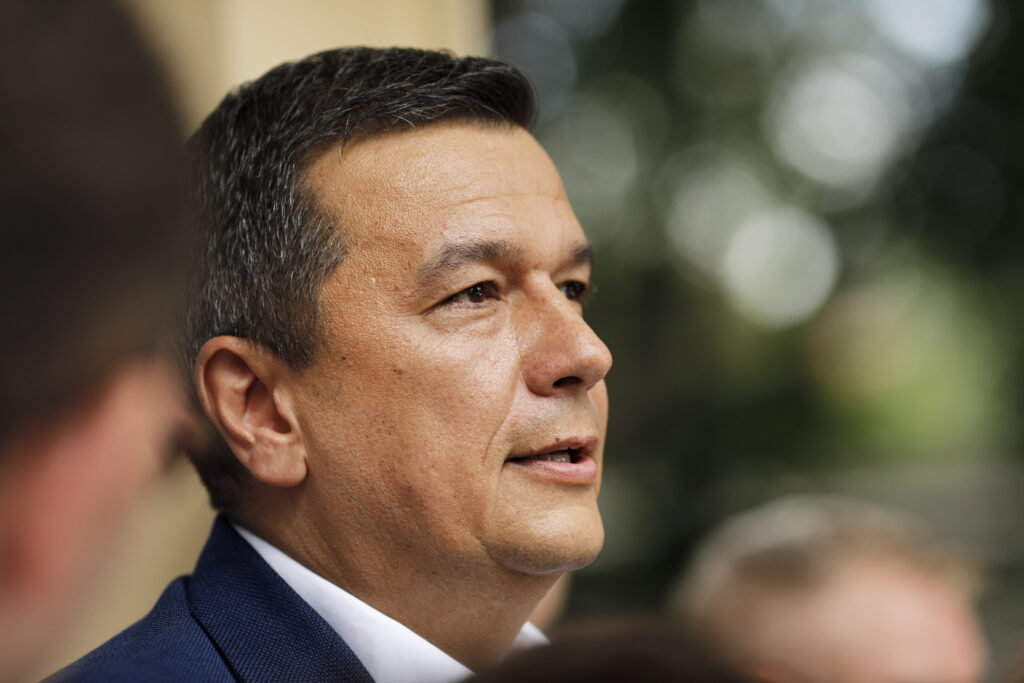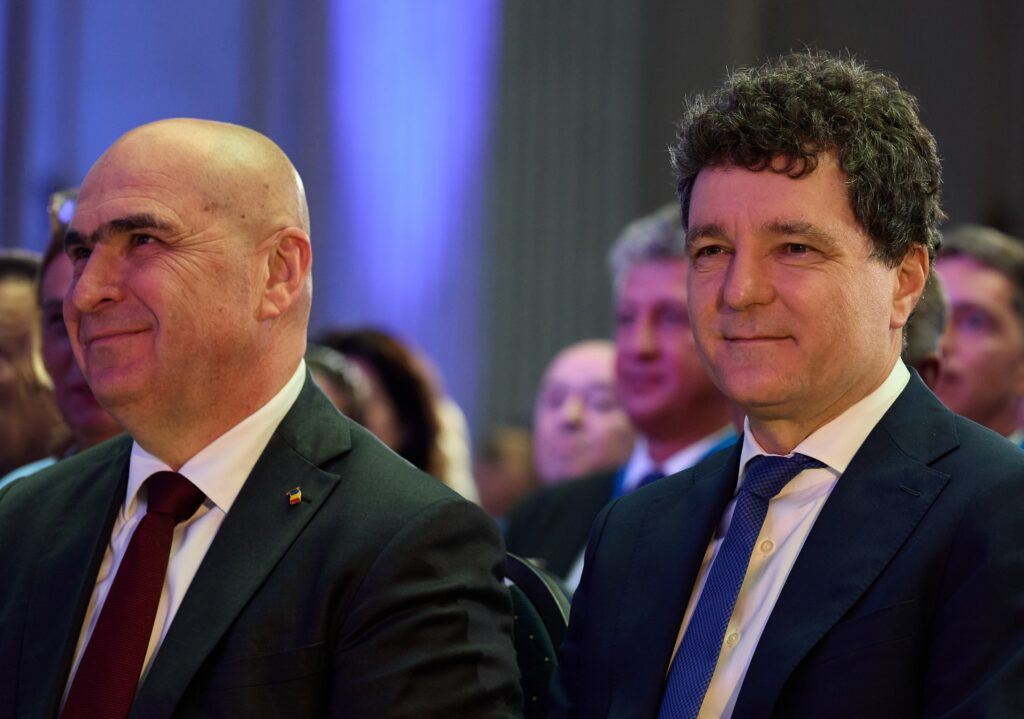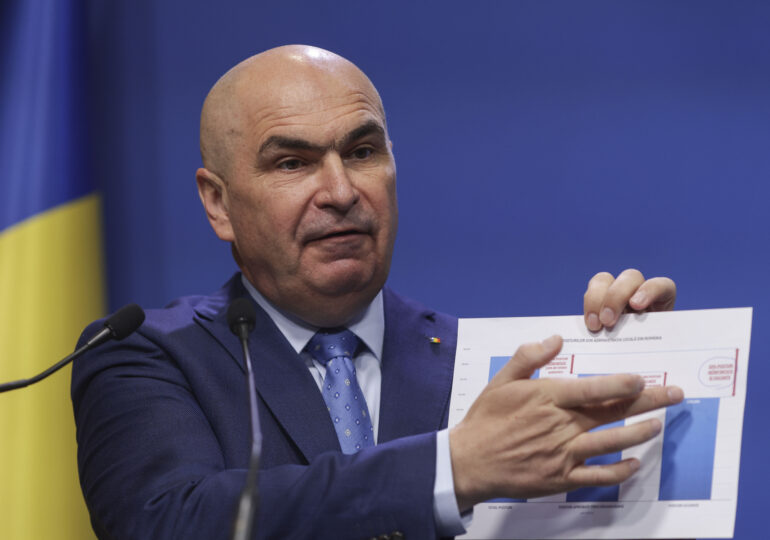After the spectacular press conference that lasted an hour and a half, Prime Minister Ilie Bolojan, Sorin Grindeanu (PSD), Dominic Fritz (USR), and Kelemen Hunor (UDMR) met with Romanian President Nicușor Dan at Cotroceni Palace.
According to several political sources, the discussions were tense and lasted for three hours. Ilie Bolojan and Sorin Grindeanu each came with different visions regarding the reduction of expenses in local administration.
The Prime Minister is calling for a real reduction of at least 13,000 positions in local administration, while PSD wants to impose a target for reducing expenses for each municipality, and the decision on whether to lay off people or cut funds from elsewhere to be made by mayors together with county councils.
The interim leadership of PSD, affected by electoral failures, aims not to clash with the network of mayors in the country and thus refuses layoffs in local administration.
The plan proposed is actually a trap because, in this case, the reductions will be made again on paper, meaning giving up on certain budgeted expenses that were not being made anyway due to lack of funds, with no concrete effects on municipal budgets.
There are no magic solutions
Another idea spread on various social-democratic communication channels is related to the fact that the departure of 13,000 employees from municipalities in the country means a reduction of 1.4 billion lei per year, approximately 300 million euros.

What PSD doesn't say is that these are real funds that remain in the localities and are no longer requested from the budget as in many previous situations.
In order to reduce the budget deficit by one percentage point, the government must reduce public expenses, recorded at the level of 2025, by approximately 6 billion euros.
This insignificant reduction, as many social democrats consider it, accounts for 5% of the annual deficit reduction by one percentage point.
In addition to the financial impact, it also leads to accelerating the process of streamlining municipalities, thus being able to postpone the increase of local taxes, but it is also the first sign that the burden of budget rebalancing is not done exclusively through new taxes and on the backs of the 70% of employees working in the private sector.
An unbearable and sincere Prime Minister
Nicusor Dan, at the meeting with the coalition leaders, showed signs of support for Ilie Bolojan and asked the coalition party leaders not to attack him anymore. It is not very clear whether he was sincere or just trying to avoid a political crisis that he cannot control.
The head of state may have realized that he does not have solutions for a prime minister, at least for now, and the resignation of Ilie Bolojan could be a bigger problem for Cotroceni than the reduction of 13,000 positions in the country's municipalities.

The Prime Minister of Romania is not a likable character. Stern, with a penetrating gaze and always frowning, he causes unrest as soon as he enters a room.
But behind this furious personality lies an empathetic, pragmatic, and sincere one.
It is well known that former President Klaus Iohannis could not stand him and pulled all possible strings in the PNL to keep him as far away from Bucharest as possible.
It is always difficult when you have to reorganize, reduce, cut expenses; it is very difficult to prioritize investments, to stagger them is just as difficult because everywhere people see their priorities - a hospital foundation has started, the community sees it rising, they do not understand why funding is no longer available because they cannot finish it on time in the PNRR.
And then solutions must be found. These are very difficult things, and that is why you do not see enthusiasm in this area, quite rightly, and neither any commitment.
Ilie Bolojan, Prime Minister of Romania
Moreover, the current president has given enough signs that he is not on the same page as the prime minister; many of the questions posed by reporters at the press conference at Victoria Palace referred to the tense relationship between the two.
In the discussion with journalists, Bolojan stated that he found "a more difficult budgetary situation" than expected and that "there were not too many candidates willing to take on the position of prime minister," referring to the fact that few are willing to take on reform measures and tax increases to drastically reduce the budget deficit.
Oradea, the key to success
Bolojan's main asset is courage. He is not afraid of failure, of becoming unpopular, or of being criticized by coalition colleagues. And his courage is based on the success he had as mayor of the city of Oradea and as president of Bihor County Council.
There are few political leaders now in Romania who had a plan, implemented it, and succeeded. As he himself admitted, what he did as mayor, he wants to do as prime minister. For him, Romania is the new Oradea. He publicly admitted that the challenge is more complex but seems determined to at least try.
During the electoral campaign, there was much talk about state reform and the need to reduce public sector salaries. It was a rare consensus in Romania. Everything was fine until the issue of cuts arose.
Then, as usual, protests emerged, categories of public sector employees who felt unfairly treated, others affected by the elimination of bonuses or other reductions. This was compounded by dissatisfaction related to tax increases.
At this moment, it is not clear whether the austerity measures, higher taxes, and layoffs in public and central administration will stabilize and revive the economy, but it is clear that Bolojan is the only solution and no one is more qualified to do this.

